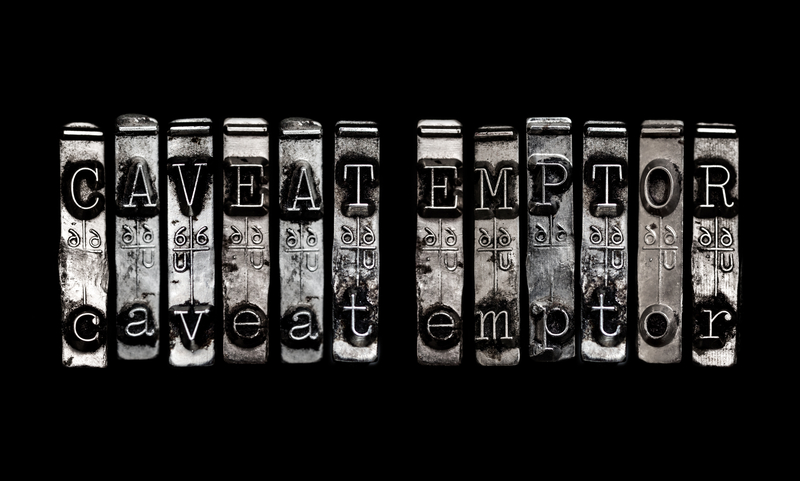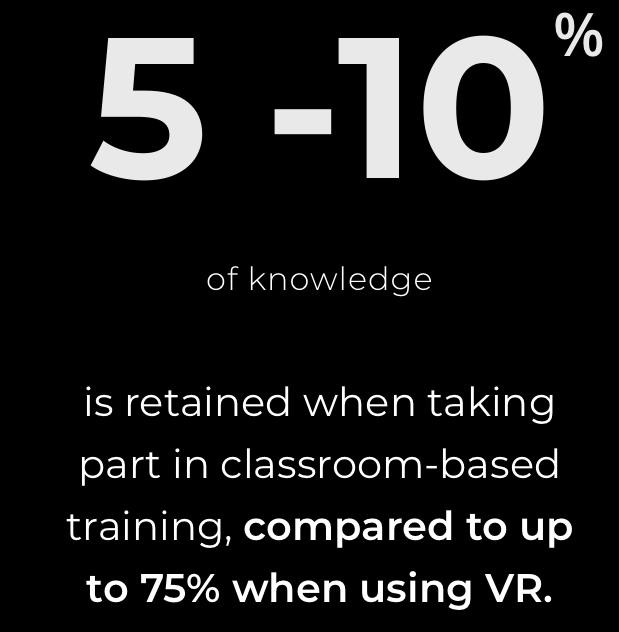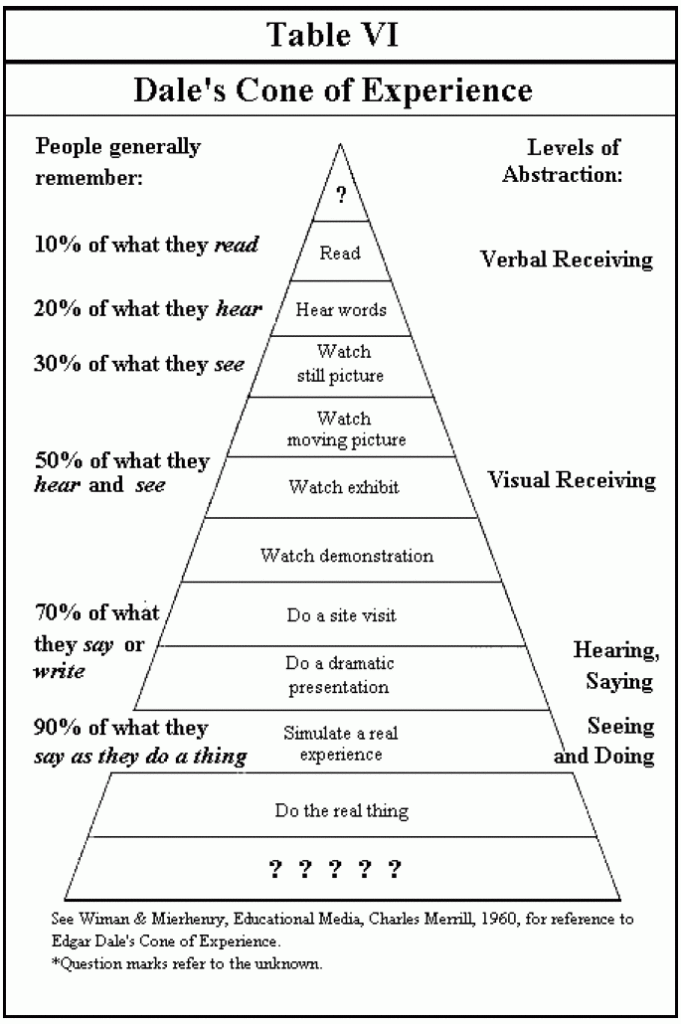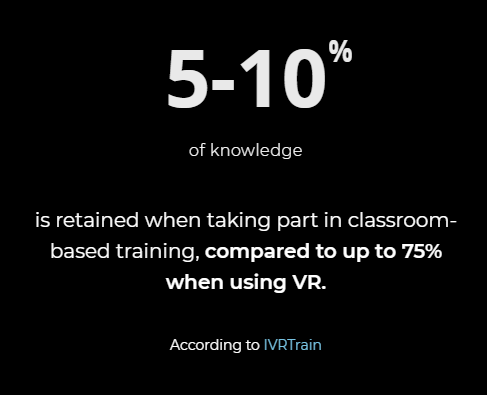Moonrakers!

So the moon really is made of cream cheese?
Wiltshire once lay on the secret smuggling routes from the coast of England. Some local men had hidden contraband barrels of French brandy in a village pond. While trying to retrieve these with rakes at night, they were caught by the revenue men. However they explained by pointing to the moon’s reflection and saying they were trying to rake in the big round cheese. The revenue men, thinking they were simple yokels, laughed and went on their way. But, as the story goes, it was the Moonrakers who had the last laugh!

Over six months ago Learning Accelerators highlighted an extraordinary advertising claim on this website operated by a Virtual Reality learning company called ‘The Moonhub’, who claim to offer ‘a new frontier in training for forward-thinking companies’ Amongst other things the website carried the remarkable statement below:

Every business has to attract attention and we all have to earn a living, but this bold statement seemed a little outrageous, even by the loose standards of the Internet age.
Let’s reflect on that statement for a second. ‘5-10% of knowledge is retained in classroom-based training, compared to up to 75% when using VR’
We encourage buyers of learning solutions and services to apply their critical thinking skills. Is this advertising claim likely to be literally and scientifically true? And if it was – then how might scientists have proved this, given all of the variables involved?
If this statement is accurate then the social and economic implications would be huge. There are thousands of face-to-face training businesses across the UK and probably hundreds of thousands across the world. Beyond that, consider all the schools and universities across the globe offering various species of ‘classroom-based’ learning. The value-for-money provided by of all of these organisations is being denigrated equally in this one advertising claim.
The statement was not qualified in any way, nor was a source cited for these astonishing statistics. We lost no time in reaching out to the Founder/Director of The Moonhub Dami Hastrup, asking him to substantiate this specific advertising claim. This was his response:
Despite the offer to provide further information Mr Hastrup stopped answering questions via LinkedIn. We therefore looked more closely at the content of the VRLearn MASIE Report 2017 cited by The Moonhub, which confidently states:

Learning Accelerators has two concerns about the total reliance that The Moonhub is placing on this comment from Elliott Masie.
- Firstly, the statement by The Moonhub is unequivocal, unqualified by any reference to ‘a study’ – the information is presented as if it were a simple scientific rule!
- Secondly the rates of retention claimed and the ‘National Training Laboratory study’ form part of a notorious scientific myth commonly known as ‘Edgar Dale’s Cone of Experience’, depicted in one of its many manifestations below.
Edgar Dale (1900-1985) was an American educator best known for his ‘Cone of Experience’ and for his work on how to incorporate audio-visual materials into the classroom learning experience.
To illustrate the depth of bitter disrepute into which Dale’s ‘Cone’ has fallen in recent years, an entire issue of Educational Technology magazine (Volume LIV, Number 6- November-December 2014) was devoted to a page-by-page forensic destruction of this myth. We will leave it to Will Thalheimer to complete the demolition process with this ‘tour de force’ of research – Mythical Retention Data & The Corrupted Cone.
The National Training Laboratories (NTL) story is a subset of the same insidious myth. Images showing a pyramid like the one below have been circulating since the mid-1960’s. It is commonly alleged this pyramid was developed and used by NTL Institute at their Bethel, Maine campus in the early sixties when they were was still part of the National Education Association’s Adult Education Division.

As you can see, the Pyramid does imply lecture and reading results in average retention rates of under 10% and ‘Practice doing’ at 75%. This shape is the hazy reflection that the Moonrakers are pointing to on the surface of our pond. They are relying on this evidence to prove that face-to-face education is failing globally.
Let’s apply our critical thinking skills again. Run your eye further down towards the base of the pyramid. What do you see?
Audiovisual? Demonstration?, Discussion? Practice? – surely these are all sub-components in modern learning facilitation – in the classroom or elsewhere?
And how does the passage of time play into all this? Over what period do these retention periods apply?
As Will Thalheimer points out in his paper ‘How much do people forget?‘, sweeping rules-of-thumb that show people forgetting at some pre-defined rate are just plain false.
It now won’t come as a shock that the Pyramid has no verifiable scientific basis whatever!
Today, the NTL is known as the NTL Institute for Applied Behavioral Science. When approached with queries about the ‘Learning Pyramid’ they do acknowledge the attribution but explain they no any longer have – nor can they find, the original research that supports the numbers given above. They have attracted the ire of Will Thalheimer and many others as a result:
It remains unclear why Elliott Masie decided to highlight this long-lost NTL ‘research study’ in his VRLearn paper back in 2017, given that this had been publicly debunked in 2014. It is impossible to imagine why Elliott felt this discredited study (the content of which has been entirely lost) had any scientific relevance to readers interested in Virtual Reality in 2017.
Modern face-to-face learning facilitation is not comparable with lecturing formats already deemed ‘old-fashioned in the 1960’s. Since VR was unimaginable in the early 1960’s this medium was clearly not the benchmark that NTL researchers used for ‘Practice Doing’ – which is what Elliott describes as ‘the method of VR Learn.’
Six months ago The Moonhub was reminded that marketing communications by or from UK companies on their own websites are subject to regulation by the Advertising Standards Authority. The ASA will apply the UK Code of Non-broadcast Advertising and Direct & Promotional Marketing (CAP Code) to determine if advertising is essentially misleading.
However, the only material change in the position adopted by The Moonhub in the last six months occurred last week, when this link and the words ‘According to IVRTrain’ were inserted alongside other fresh citations as shown above.
On the basis of the facts outlined above Learning Accelerators has shown that the VRLearn document now publicly cited by The Moonhub does not provide adequate substantiation under Section 3.7 of the Non-Broadcast CAP, as follows:
3.7 – Before distributing or submitting a marketing communication for publication, marketers must hold documentary evidence to prove claims that consumers are likely to regard as objective and that are capable of objective substantiation. The ASA may regard claims as misleading in the absence of adequate substantiation
Learning Accelerators also believes that The Moonhub is breaching the following clauses of the Non-Broadcast CAP on exaggeration:
3.11 – “Marketing communications must not mislead consumers by exaggerating the capability or performance of a product.”
3.13 – “Marketing communications must not suggest that their claims are universally accepted if a significant division of informed or scientific opinion exists.”
Like the fabled Moonrakers of old, Dami Hastup and his colleagues at The Moonhub know full well what they are doing. They are simply pretending to be naiive to the truth because it suits them and presumably because some new clients are being drawn in by this claim.
The easiest thing to do in these circumstances is what the revenue men of old chose to do. Shrug our shoulders, have a chuckle and walk on, leaving the Moonrakers to go about their business!
But then again – that’s not really fair is it? Because in making this claim, month after month, The Moonhub is disparaging the value-for-money offered by thousands of hard-working face-to-face training and education businesses around the UK. Not only that, The Moonhub are also gaining an unfair competitive advantage over other immersive learning businesses too scrupulous to make this kind of sweeping statement.
Fortunately, if you’re a member of the public, you work for a competitor or are part of any group with an obvious interest, then you do have the right to complain to the Advertising Standards Authority about this under the CAP Code.
So if you feel strongly about this situation then we encourage you to submit a complaint via the Advertising Standards Authority website by clicking here.
Unless a line is drawn the Moonrakers will simply keep raking it in!
The Caveat Emptor campaign continues next week




